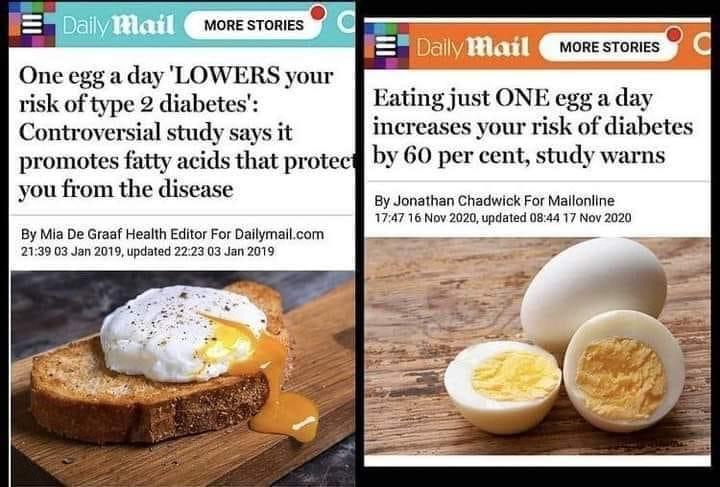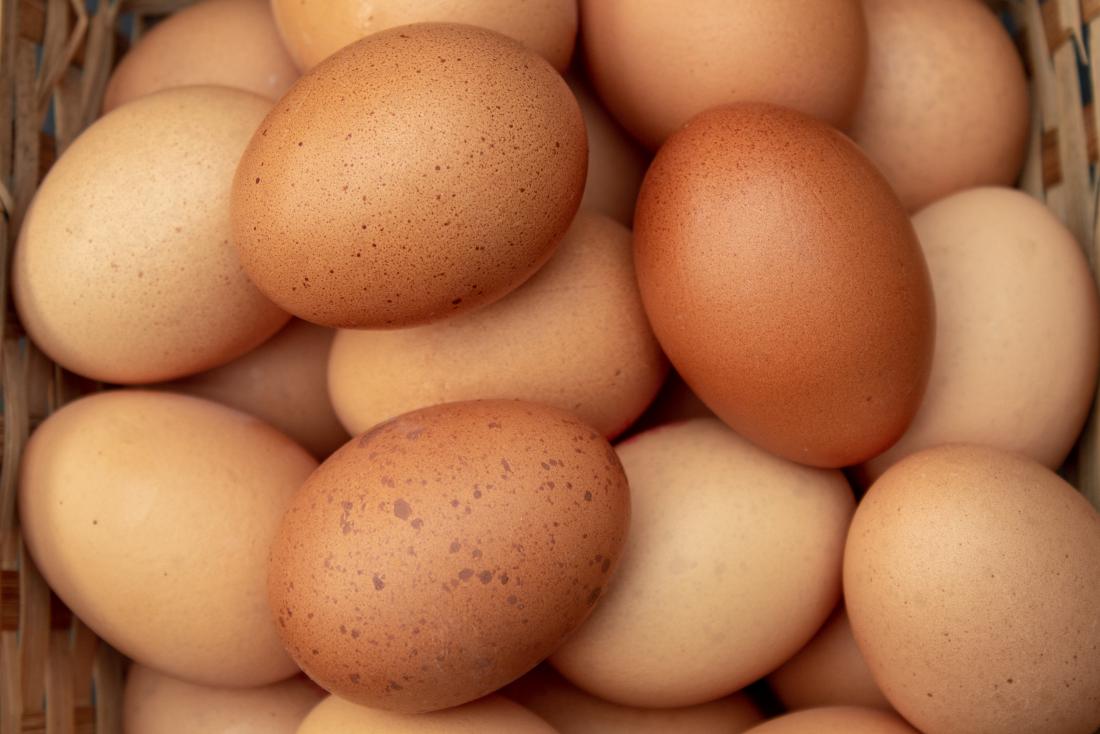Recent studies have warned that eggs and insulin resistance may be inextricably linked as reports that eggs may cause diabetes have circulated the press [R]. Despite the alarmism from the press and some researchers, there could be evidence to suggest that eggs could, in fact, promote the opposite effect and decrease insulin resistance under the correct circumstances.
Within these studies, a lot of mitigating factors have not been taken into consideration.

Preface
Over the past few months, we’ve been considering in detail the crucial role of nutrition in ensuring health and strength. Nearly sixty years ago Vince Gironda, the legendary Iron Guru, famously said that bodybuilding ‘is 85% nutrition’ (see our articles on his cutting and mass-gain diets here and here), but even now it’s still true that the average person, even the average bodybuilder, underestimates just how important correct nutrition is to building the right kind of physique.
As part of this series on nutrition, we’ve already discussed vegetable oil, soy, six superfoods you should be eating and four foods that will make you ugly. The role of nutrition is also central to our series on testosterone, to accompany our forthcoming book Reclaim Your Masculinity: foods that raise your testosterone, foods that lower it and the role of environmental chemicals (xenoestrogens) in the food chain that can upset your hormonal balance.
In this article, we’ll consider two scientific studies that provide yet another reason why you should be consuming eggs as part of your diet, in addition to those listed in the articles above, some of which we’ll recap here as well.
Eggs: from the Golden Era to Today
Vince Gironda: the Golden Era king of eggs
Once upon a time, in the Golden Era of bodybuilding, eggs were an essential part of every bodybuilder’s diet. And I don’t just mean egg whites. No, I mean the whole egg, yolk and all. Lots of them.
One bodybuilder, in particular, stood out in this regard: Vince Gironda, the ‘Iron Guru’ and founder of Vince’s Gym, in West Hollywood.
We offer a comprehensive 12-month 5×5 programme based on Golden Era principles for strength and aesthetics. Get it here.
Vince is one of the great mavericks of bodybuilding history, but for various reasons, his contribution to bodybuilding, including his anticipation of many later trends, such as ketogenic dieting and intermittent fasting, still remains to be properly recognised.
In addition to his difficult, outspoken personality – he famously called Arnold Schwarzenegger a ‘fat f***’ when he met him for the first time – the general direction of bodybuilding over the course of his life was divergent from his own ideas and practices.
Arnold at around the time he first met Vince Gironda: a fat f***?
Among many pet dislikes, Vince shunned shiny, complicated machines, wouldn’t allow music in his gyms and absolutely loathed the use and abuse of steroids.
Instead of performance-enhancing drugs like dianabol, Vince advocated cycles of huge quantities of eggs, which he called ‘nature’s steroid’.
As he wrote in his 1984 training manual:
‘It’s kind of a joke now – Gironda and eggs! Well, my friend, bodybuilding nutrition today is “procuring male hormone!” You can do it artificially with steroids or naturally with eggs, which is better than any steroid pill.’
Egg consumption featured heavily among Vince’s various diets, including his steak-and-eggs diet for competition preparation – steak and eggs three times a day, anyone? – and perhaps most famously his 36-eggs-a-day diet for mass gain, also known as the ‘hormone precursor diet.
Why 36 eggs is Better than a Steroid Cycle. The 3 Dozen Eggs a Day Diet by Vince Gironda – YouTube
If you need a recipe book to help you cook some tasty recipes aside from eggs, click here to try our diet bundle.
The Golden Era Bookworm on Vince’s hormone precursor diet
Since then, eggs, or at least whole eggs, have fallen out of favour with bodybuilders, many of whom would sooner eat a flaming dog turd than an egg yolk.
In large part this has been as a result of the more widespread demonisation of fat, especially animal fats, and cholesterol in health and fitness culture. One large egg contains 186mg of cholesterol, over half the daily recommended intake, with almost all of it in the yoke, rather than the white.
We’ve already examined the cholesterol theory of heart disease, and why evidence is mounting that it is totally mistaken, in our articles on vegetable oil and butter.
If you’re worried about dietary cholesterol intake, there’s plenty of evidence that actually you really shouldn’t be. In fact, most people’s consumption of dietary cholesterol has nothing to do with their blood cholesterol levels. [R]
Why You Shouldn’t Be Afraid of the Cholesterol in Whole Eggs
Cholesterol: unfairly maligned for decades
Studies are now proving just how stupid it is only to consume egg whites, rather than the whole egg, is. A recent study, for instance, showed that consumption of whole eggs
‘immediately after resistance exercise resulted in greater stimulation of myofibrillar protein synthesis than did the ingestion of egg whites, despite being matched for protein content in young men’. [R]
Exactly why this happens isn’t fully clear, but it may have to do with the cholesterol content of the yolk – supposedly one of the reasons you shouldn’t be consuming whole eggs.
Egg yolk: not the demonic substance you’ve been told it is
Believe it or not, there appears to be a closer correlation between cholesterol intake and lean muscle mass gain than between protein intake and lean muscle mass gain. Steven Riechman, for instance, has shown a linear dose-response between cholesterol intake and lean muscle mass increases, and a second study showed similar results. [R] [R]
The precise mechanism by which cholesterol increases muscle mass is not obvious at present. It has been suggested that it might have to do with effects on cell membranes, inflammation or lipid raft formation and cell signalling – or all of those things.
There’s evidence from a number of studies on saturated fat, which is a building block of cholesterol, that diets high in saturated fat increase testosterone production. Low saturated fat intake is very clearly associated with reduced testosterone. [R] [R]
We’ve covered these benefits in a number of previous articles, but they deserve reiterating. There are very good reasons to be eating eggs if you want to build muscle.
Now we’ll focus on a benefit of eating eggs we haven’t discussed yet: reduced insulin resistance.
Eggs and Insulin Resistance
Insulin resistance is closely related to diabetes
Insulin resistance occurs when particular cells in the body – the muscle, fat and liver cells – become less responsive to the hormone insulin, secreted by the pancreas, and as a result begin to lose the ability to use glucose as fuel.
In response, your pancreas makes more insulin, and your blood sugar levels rise. Insulin resistance is part of a broader category known as metabolic syndrome, including obesity, high blood pressure and type 2 diabetes. As many as 1 in 3 Americans may be affected by metabolic syndrome. [R]
Risk factors include obesity, especially belly fat, lack of exercise, a diet high in carbohydrates, a family history of diabetes, age, sleep problems and certain medications like steroids and HIV drugs. Certain ethnicities, such as Polynesians and Latinos, appear to be more at risk of insulin resistance too.
Insulin resistance and obesity, in particular, are intimately connected, and together can become a vicious cycle, with insulin resistance feeding obesity, which then in turn feeds further insulin resistance, and so on. [R]
Insulin resistance also leads to chronic inflammation. In the context of processed foods, we’ve already talked about the role of inflammation in poor health and disease, especially in association with being overweight or even obese. In fact, inflammation is a known factor in almost every identifiable medical condition you could name.
Over time, insulin resistance can become full-blown diabetes. This occurs when the pancreas becomes unable to produce enough insulin to control your blood sugar levels.
Two studies by the same group of scientists from 2004 show that dietary cholesterol from eggs helped to reduce the symptoms of metabolic syndrome in overweight men on a carbohydrate-restricted diet. [R] [R]
While noting that carbohydrate-restricted diets are a good way to lower glucose and insulin levels, and improve the body’s blood lipid profile (by decreasing triglycerides and increased HDL cholesterol, often misleadingly referred to as ‘good cholesterol’), the first study showed that the increase in plasma HDL was much greater in the subjects who also consumed three eggs a day as part of their diet.
The second study builds on the first and examines in particular how consumption of eggs on a carbohydrate-restricted diet affects adiponectin, a marker of insulin sensitivity, and other inflammatory markers.
The study shows that levels of adiponectin are beneficially increased by adding eggs to a carbohydrate-restricted diet, meaning that they decrease insulin resistance. Levels of CRP, an inflammatory marker, were also decreased in the egg group, but not in the other. It is speculated by the authors that this latter effect may be due to the presence of two potent antioxidants, lutein and xeazanthin, in eggs.
What To Do with This Information?
Shine on, you crazy diamond
Our advice is simple: eat whole eggs. Whether you’re looking to build muscle or lose fat and improve your health, the science confirms there’s absolutely no good reason not to. In fact, there are plenty of very good reasons why you should.
Let the Iron Guru smile down on your efforts.
If you need a recipe book to help you cook some tasty recipes aside from eggs, click here to try our diet bundle.











